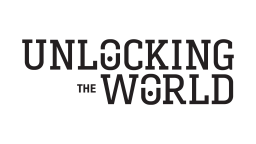Canada is easing its mandatory two-week quarantine requirement for fully vaccinated nationals and residents arriving in the country after traveling abroad.

From just before midnight on July 5, Canadians and permanent residents who’ve received a full course of a coronavirus vaccine accepted by the government can leave isolation early of if they test negative for Covid on entry.
The move, announced by federal officials on Monday, will bring an end to both the two-week quarantine for nonessential travelers returning to Canada and a hotel quarantine that was imposed several months ago.
The policy changes do not apply to fully vaccinated foreign nationals, including US citizens.
The US, Canada border remains closed to foreign nationals and nonessential travel until at least July 21.
“On both sides of the border we’re proceeding with appropriate caution and care and taking the advice of our public health experts as we begin to ease border measures.
“But clearly we’re not in there yet and we’ve got a lot of work to do and I think it’s another opportunity just encourage Canadians to continue to get those vaccinations,” Bill Blair, Canada’s public security minister, said during a press conference in Ottawa Monday.
In order to avoid going into quarantine, travelers will have to provide proof of full vaccination at least 14 days prior to travel and a negative Covid-19 PCR test taken within 72 hours of entering Canada.
All those entering will be required to self-isolate at home until the results of their Covid-19 test comes back negative.
As of Monday, Canada’s Public Health Agency reported that more than 75% of eligible Canadians have received at least one dose of a vaccine and more than 20% of eligible residents were fully vaccinated.
Federal officials called this a “first phase” of reopening given the pace of vaccination in Canada.
The easing of quarantine restrictions does not apply to children who are not yet eligible to receive vaccines, which means those under 12 will still be required to complete the 14-day isolation period at home.
“The research and science obviously indicates that children can get sick with Covid-19 and they can transmit Covid-19 and because vaccines are not authorized for use in children under 12 unfortunately most children will not be vaccinated,” said Patty Hajdu, Canada’s health minister during the press conference.
“And so, the advice from the team of scientists and public health experts is that to protect Canadians from contact with an imported case of Covid-19, that children under 12 do have to quarantine.”

